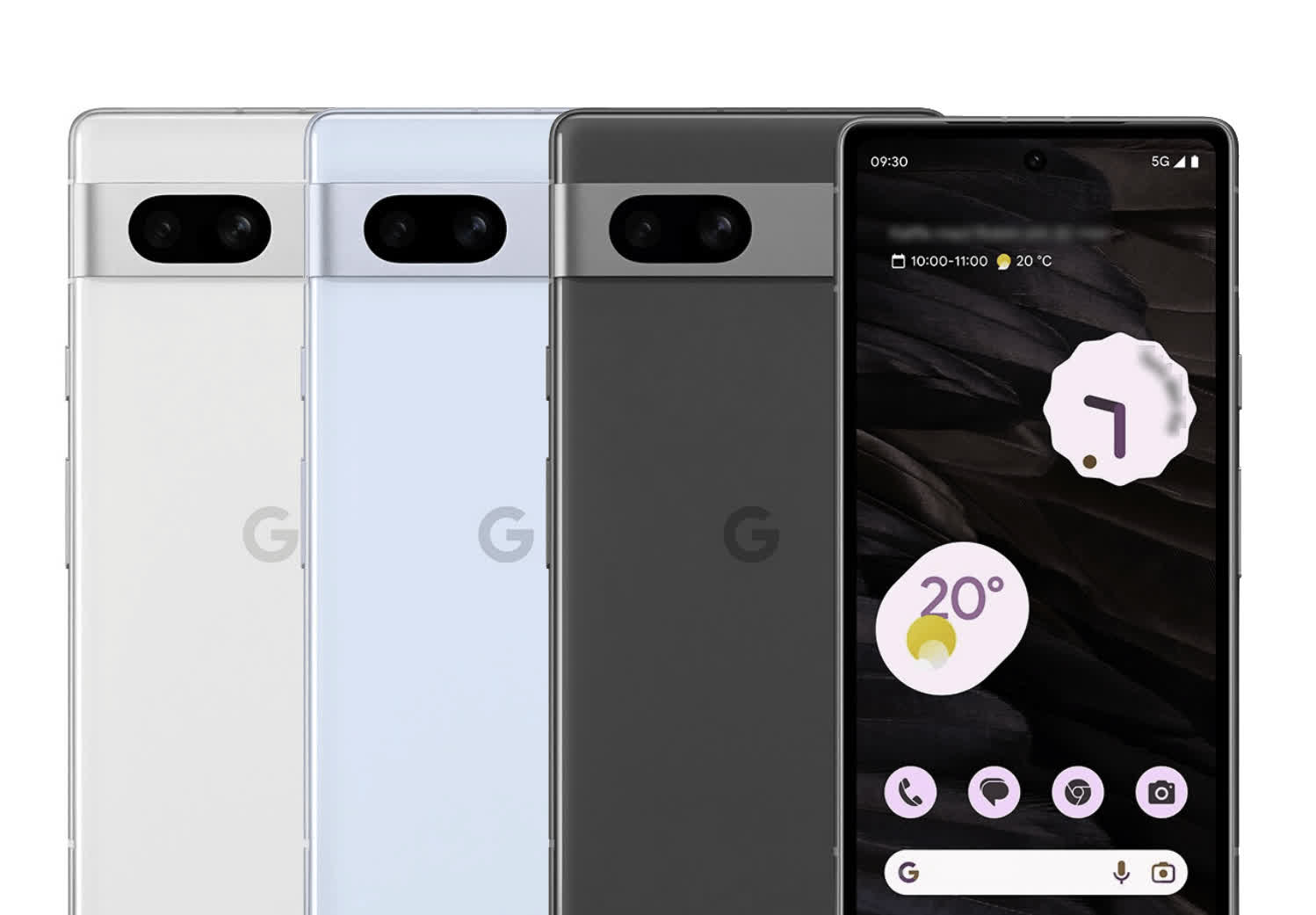In brief: We're just a few hours away from Google's annual I/O event keynote, where we're expecting to see to the new Pixel 7a, Pixel Tablet, and Pixel Fold devices. It starts at 1pm ET / 10am PT, and you can watch it all live right here.
While I/O is focused more on developers, we're expecting to see a lot more of Google's hardware this year. There'll also be a long look at Android 14 ahead of its release this summer, and plenty of presentations on AI projects, including the integration of Bard into several Google services.
The Pixel 7a will be on show at the event. Google's next midrange device looks set to pack the same Tensor G2 chipset found in the Pixel 7. It will also have a 90Hz refresh rate, an improved camera, and 18W wireless charging. The Pixel 7a is said to cost between $469 and $499, which could make it an appealing prospect in these troubling economic times.
But the most exciting device on show could be the Pixel Fold. Google has already teased its answer to Samsung's Galaxy Z Fold 4 and upcoming Z Fold 5 foldables. It's rumored to be the thinnest foldable to date, but it's also said to match the Z Fold 4 in terms of price: $1,799, though some optimistically say the Pixel Fold could start a lot lower at $1,300. The inner 7.6-inch display is expected to have a 2208 x 1840 resolution and a peak brightness of 1200 nits.
Additionally, we might see a preview of the Pixel 8 and 8 Pro at the event ahead of the phones' launch this fall.
Google will also show off the Tensor G2-powered Google Pixel tablet, which it says is the best way to enjoy the Android experience on a large screen. It can be paired with a magnetic speaker dock, giving it an Amazon Echo Show-like feel.
A lot of talk at I/O will be about Android 14, including the mobile operating system's enhancements for large-screen devices like foldables and tablets.
Given the direction the tech industry is going, much of Google's keynote will be focused on AI. CNBC writes that it will announce several generative AI updates, including the launch of a general-use large language model (LLM) called PaLM 2. It includes more than 100 languages and has been operating under the internal codename "Unified Language Model."
Make sure to come back at 1 pm ET / 10 am PT to see what Google unveils.
